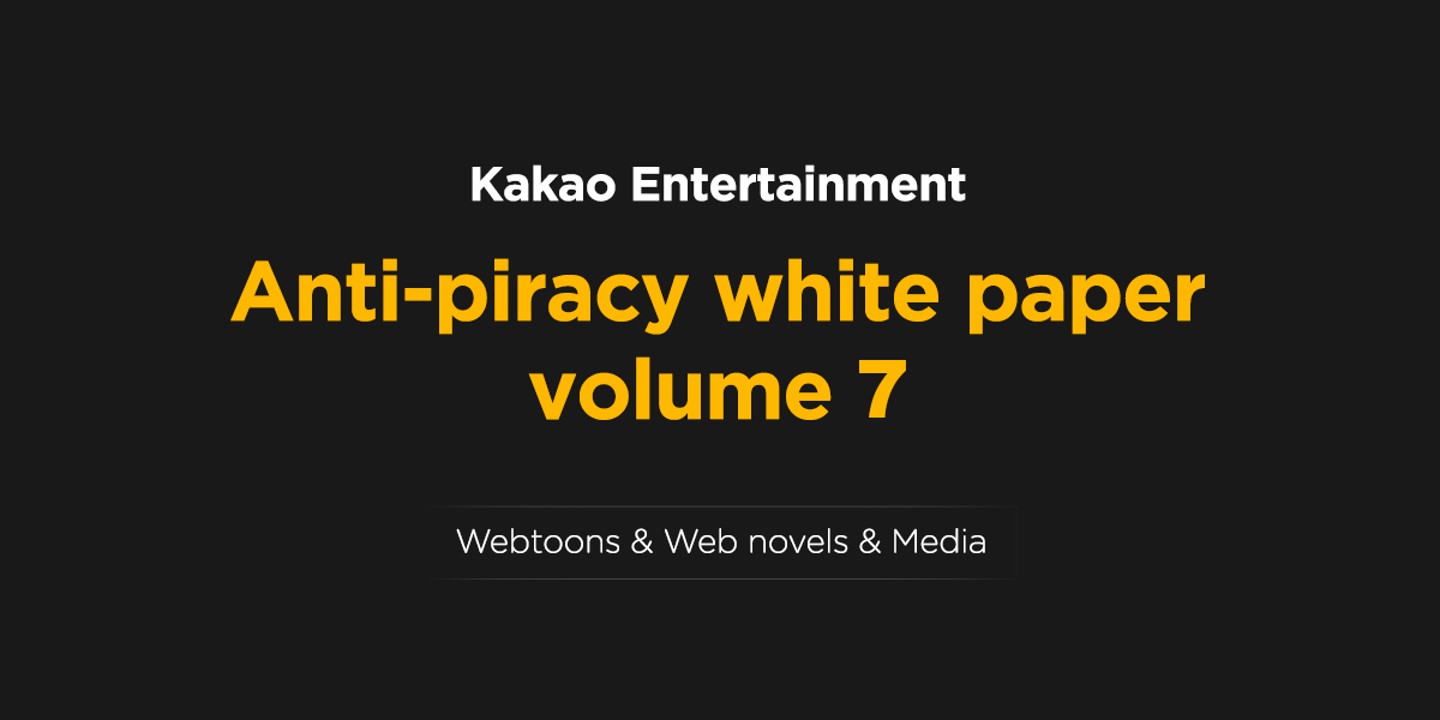SEOUL, August 19, 2025 – Kakao Entertainment’s Illegal Distribution Response Team (P.CoK) has released its seventh whitepaper compiling its achievements in the first half of 2025. The key milestone reached in this period is the establishment of a proprietary anti-piracy protocol called Targeting, Tracing, and Takedown (TTT). TTT has enabled the company to shut down illegal sites with higher accuracy and speed, while also enhancing the effectiveness of law enforcement efforts with the identification of detailed leads through international joint investigations assisted by the joint protocol.
TTT protocol
TTT is an integrated response system that provides a one-stop solution, from identifying illegal distribution channels (Targeting) to tracking operators (Tracing), and ultimately shutting them down and taking legal action (Takedown). Rather than working through external agencies, the company directly secures the operator’s identity, location and evidence about their illegal activity. TTT empowers P.Cok to go beyond basic URL removals, letting it promptly initiate meaningful enforcement procedures and pursue civil and criminal action against operators who repeatedly recreate sites or bypass blocked sites. P.Cok has been refining and strengthening the process since 2023 and officially put it into use in the first half of this year, significantly improving the speed, precision, and success rate of complete shutdowns of illegal sites. The company received the Copyright Protection Award from the Ministry of Culture, Sports, and Tourism in the investigation, crackdown, and protection category in recognition of its proactive and sustained efforts.
OSINT
At the heart of this proprietary framework is Open-Source Intelligence (OSINT). OSINT involves collecting data to analyze digital patterns across domains, servers, and social media to identify operators and enable a legal response to be taken. It has been widely adopted by investigative authorities worldwide. Kakao Entertainment has introduced the practice into the tracing phase and combined it with its field-proven, case-based knowhow and verification procedure, significantly improving the precision and speed of the process to identify operators. This new approach also helped address the limitations of traditional methods, including procedural delays that occurred when seeking disclosure from Internet Service Providers (ISPs) after a U.S. Court subpoena, differences in legal systems across countries, and insufficient investigative cooperation.
This led to the closure of 11 illegal sites and the removal of 160 million cases of illegal content in the first half of this year. Since its launch, P.CoK has identified the operators of approximately 130 illegal sites, 29 of which have been taken down. After shifting its strategy from merely deleting illegal content to cracking down on the operators, blocking sites, and refining the TTT protocol, Kakao Entertainment has seen a marked acceleration in the complete shutdown of large-scale illegal sites. Improved accuracy and real-world impact of operator identification facilitated closer and faster cooperation with authorities in a variety of sovereign jurisdictions, including China, Vietnam, Brazil, and Spain on joint investigations and legal proceedings.
Interviews with key stakeholders
In line with Kakao Entertainment’s international cooperation and precision tracking efforts, the whitepaper includes interviews with five key stakeholders: an Interpol investigator, the operator of the major illegal site called Reaper Scans, informants from Thailand and Indonesia, and a copyright lawyer. For the first time in the industry, the whitepaper presents both the perspectives of law enforcement and illegal site operators, offering a three-dimensional view of the reality of the copyright infringement, while shedding light on the challenges of international cooperation, and identifying what needs to be done to enhance public-private collaboration.
Hong Sung-jin, a Specialized Officer at Interpol, pointed to the varying levels of copyright awareness from country to country and the real-world constraints of joint international investigations, stressing the importance of information sharing by private companies and well-documented evidence. “When the data held by the affected company, who knows the damage better than anyone, is combined with OSINT, it gives enforcement authorities the best leads,” he said. “Our government has become very active in protecting copyrights because the content industry spoke up about it.”
On the other side of the spectrum is the operator of Reaper Scans, who ran the piracy site for years. He acknowledged the copyright infringement yet attempted to justify the site’s operation on the grounds that he was only providing translations for fans and that it was needed because of a lack of content availability in the local language. This underscores the significant gap in copyright awareness across countries and users and suggests the need for industry-wide efforts to promote greater awareness. Reaper Scans, which had roughly 10 million monthly visits and caused an estimated 676.9 billion won ($520.7 million) in damages, voluntarily shut itself down after being targeted by Kakao Entertainment.
The seventh whitepaper introduces for the first time P.Cok’s achievements in combating illegal video content. Kakao Entertainment initiated a month-long global anti-piracy program for its drama IPs at the end of April, successfully removing more than 200 illegal videos. This proves the effectiveness of the technologies and crackdown capabilities developed for webtoons and web novels and, as Korea’s largest content provider, the company plans to gradually expand the scope of future campaigns to include music and media.
“We’ve reached a stage where cooperation between the Copyright Special Judicial Police under Korea’s Ministry of Culture, Sports and Tourism and overseas law enforcement agencies is gaining momentum. In some countries, local investigations were initiated based on operator information we provided,” said Lee Ho-jun, Head of Kakao Entertainment’s legal department. “Leveraging our innovative TTT strategy, we’re working closely with law enforcement to provide concrete leads. To live up to our responsibility as a content rights holder, we will further strengthen our technological and organizational capabilities, lead coordination with domestic and international partners, and help foster a healthy content ecosystem.”





